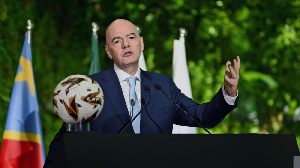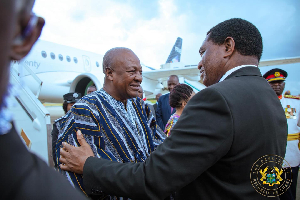About 40 selected youth from three Districts in the Upper East Region have been given community journalism training by media practitioners to identify and report on dehumanising widowhood rites practised in their respective communities.
The three selected districts which included; Bolgatanga Municipality, Talensi and Nabdam Districts and resource persons from the Commission on Human Rights and Administrative Justice (CHRAJ) educated the youth on rights of widows and women in general.
The two-day workshop, organised by the Widows and Orphans Movement (WOM) A Non- Governmental Organisation (NGO) with funding from Action Aid Ghana, another NGO, in Tongo in the Talensi District, is aimed at empowering the youth with journalistic skills and knowledge on the adverse effects of widowhood rites that were dehumanising.
The two NGOs have over the years collaborated effectively to ensure the dehumanising cultural practices against widows were either modified or abolished in some communities in the region and work to enhance the wellbeing of widows and orphans.
During the training, the youth were empowered to be ambassadors against cultural practices that were dehumanising to widows in their various communities and educate their colleagues and community members to realise the bad effects of the practices.
The media practitioners took the youth through the rudiments of community journalism, poetry recitals, drama, music, storytelling, photo story and cartooning among others as techniques to employ to sensitise their respective communities and report on some of the dehumanising widowhood rites to bring about change in the life of women.
Speaking at workshop, Mr Abdulai Jaladeen, the Upper East Regional Director of CHRAJ stated that the 1992 Constitution of Ghana frowned on practices that were discriminatory and truncated the rights and freedoms of an individual.
He explained that there were lots of injustices in society in the name of tradition and said most of them were against widows and women in general and urged the youth to work with the media to bring an end to the practices in the various communities.
The Regional Director expressed regret that over years, widowhood rites had led to streetism among children due to extreme poverty, truncation of education, social vices, and urbanisation, unwanted and teenage pregnancies among others and called for collective efforts from all stakeholders to end the menace.
Mr Jaladeen encouraged the widows who were maltreated to report to the appropriate authorities including his outfit, and said widows played crucial roles in community development and should be considered as partners in development and not be maltreated through dehumanising widowhood rites.
Ms Patricia Ayichuru, Programme Officer at WOM indicated that her NGO was not against all widowhood rites but those such as bathing the widow in public, forcing the widow to take concoction, pouring hot and cold water on the widow, bathing them from a calabash in front of men, eating food cooked at the refuse dump among others.
She said synergy between the media and the youth was very critical in their quest to modernising some practices on widowhood rites in the communities and charged the youth to be proactive in the duties assigned them.
Madam Betty Ayagiba, the founder of WOM who thanked the media and the CHRAJ Director as well as the youth for honouring invitation to the workshop, and explained that women were special to God and any activity that dehumanised them was unpleasant to God.
Mama Betty encouraged the youth to be good ambassadors that would yield positive change in their respective communities and cautioned them to be mindful of their language when interacting with community members particularly against the elderly.
General News of Friday, 25 May 2018
Source: ghananewsagency.org
Youth empowered to fight negative widowhood rites
Opinions












